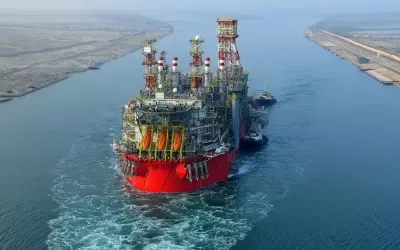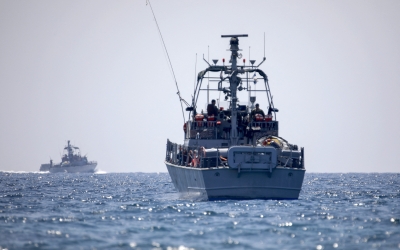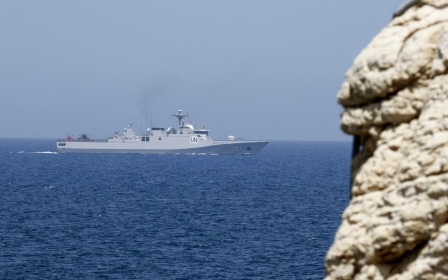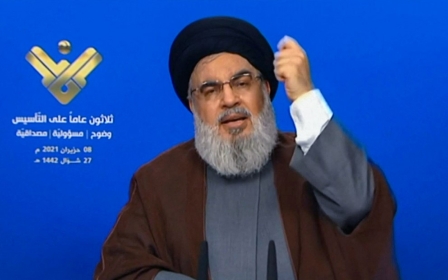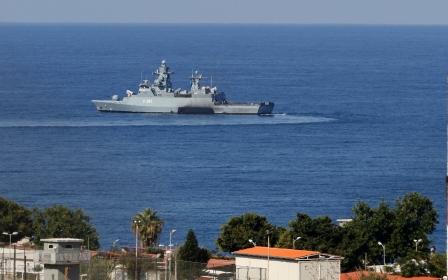Lebanon's Hezbollah launches three unarmed drones towards disputed area with Israel
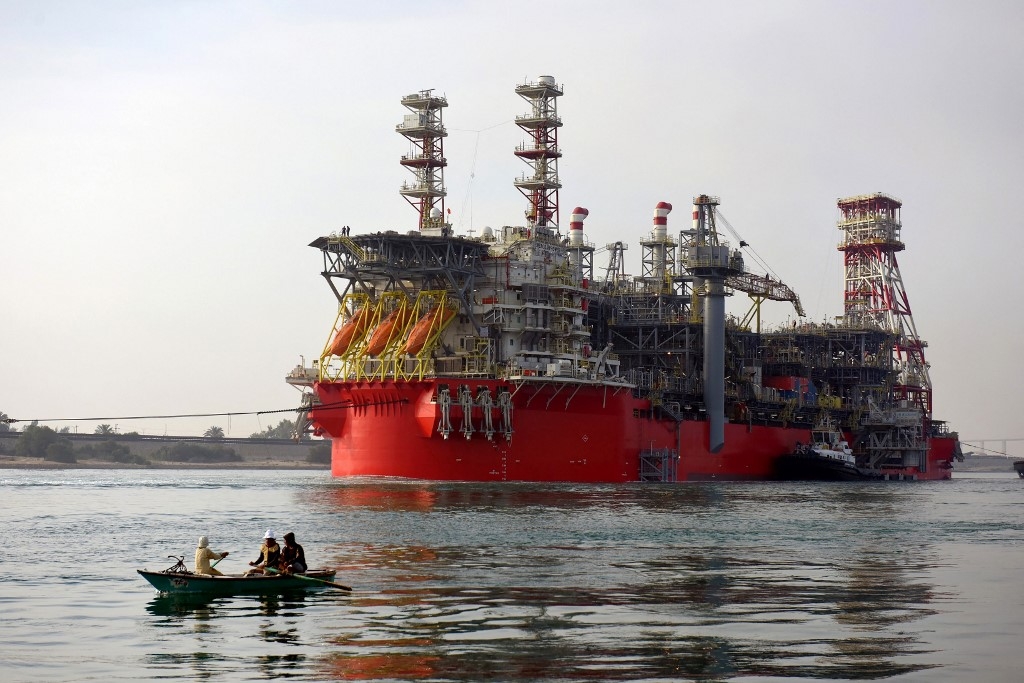
Lebanon's Hezbollah said on Saturday it had launched three drones towards an offshore gas field in the Mediterranean, after Israel's army said it had intercepted drones belonging to the Iran-backed movement.
"On Saturday afternoon, three unarmed drones were launched towards the disputed Karish field for reconnaissance missions," the Shia group said in a statement.
"The mission was accomplished," it added, without mentioning any Israeli interception.
There was no immediate response from Lebanese authorities to the incident, which came amid tensions over the location of the Israeli rig and long-standing but so-far fruitless US-mediated efforts to agree on a maritime border.
Israel had earlier said it had shot down three drones headed from Lebanon towards one of its gas rigs and had accused the Iranian-backed Hezbollah group of launching them.
The Israeli military said its forces had intercepted "three hostile UAVs which approached the airspace over Israel's economic waters".
An Israeli security source said the drones had been unarmed, although this was not immediately confirmed by the military.
Israeli Defence Minister Benny Gantz, on accusing Hezbollah of being behind the launch, said in a statement that it was "preventing the state of Lebanon from reaching an agreement regarding maritime borders, which are critical to the economy and prosperity of the Lebanese nation".
Saturday's interceptions were the first time an air defence system mounted on an Israeli naval ship had downed an incoming target, the military said.
'Decisive decision'
Last month, Hezbollah had warned it was ready to take action, "including force," if Israel drilled for oil and gas in the disputed maritime border area between the two countries.
Hezbollah's number two, Sheikh Naim Qassem, told reporters on 6 June that the Shia group was waiting on the Lebanese government to adopt a clearer policy, a day after a vessel operated by London-based Energean plc (ENOG.L) arrived off the coast to develop the Karish gas field known.
Israel and Lebanon both claim some 860 sq km of the Mediterranean Sea.
Israel claims the Karish field is part of its UN-recognised exclusive economic zone and awarded British-Greek energy firm Energean rights to the field in 2016.
"When the Lebanese state says that the Israelis are assaulting our waters and our oil, then we are ready to do our part in terms of pressure, deterrence and use of appropriate means - including force," Qassem had said.
"The issue requires a decisive decision from the Lebanese state," he added, saying that Hezbollah "urged the government to hurry up, to set a deadline for itself".
Qassem said the Iran-aligned group would act "no matter the responses," even if it led to a broader conflict.
In an interview, also on 6 June, Israeli Energy Minister Karine Elharrar downplayed the risk of escalation.
"We are not there at all. Really, such is the disconnect [between rhetoric and reality] that I do not believe they would take action," she said. "Israel is making preparations [and] I recommend that no one try to surprise Israel."
Elharrar also disputed Lebanon's claim to Karish. "It's not even [above] the southern line that Lebanon submitted to the United Nations. Even according to the United Nations, it's not in Lebanon," she said.
The US has been facilitating talks between the two countries since 2020, but negotiations have stalled in recent months.
'Threat to international peace'
The situation is complicated by the fact that Lebanon and Israel have no official diplomatic relations. Israel fought a war with Hezbollah in 2006, and the countries are separated by a UN-patrolled border where they sometimes exchange fire.
Indirect talks between Lebanon and Israel stalled last year after Beirut demanded that the boundary that separates the fields, known as Line 23, be pushed further south to Line 29, adding around 1,400 sq km to its claim, including part of the Karish field, which Israel is also claiming.
Israeli negotiators met with a US mediator on 25 June in an effort to resolve the dispute.
"The team heard an update from the mediator's visit to Lebanon and the parties discussed formulating constructive directions for moving forward with negotiations," Israel's Energy Ministry said in a statement.
The ministry said it would preserve Israel's economic and security interests but intends to "resolve the issue in the near future".
According to Lebanese President Michel Aoun's office, Lebanon formally notified the UN in February that Karish was part of the disputed area and asked the Security Council to prevent Israel from drilling there in order "to avoid steps that could form a threat to international peace and security".
Middle East Eye propose une couverture et une analyse indépendantes et incomparables du Moyen-Orient, de l’Afrique du Nord et d’autres régions du monde. Pour en savoir plus sur la reprise de ce contenu et les frais qui s’appliquent, veuillez remplir ce formulaire [en anglais]. Pour en savoir plus sur MEE, cliquez ici [en anglais].


